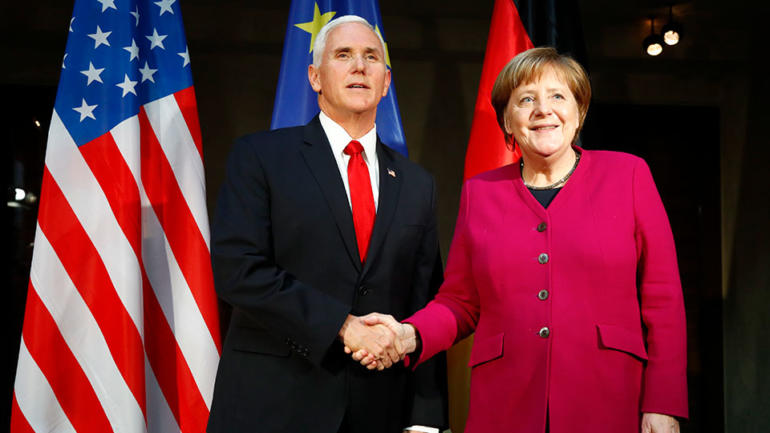China and the U.S. traded barbs at the Munich Security Conference–Washington is calling Chinese telecom giant Huawei a global ‘threat,’ but Beijing denies the allegation and says the company is working closely with other governments.
CGTN’s Natalie Carney has details from Munich.
Senior Chinese diplomat Yang Jiechi began his speech to the conference underlining the crossroads the world finds itself in — between unilateralism and multilateralism, confrontation and dialogue, isolation and openness.
“We must work together to pursue the greatest possible common interest among nations and expand areas of converging interests on the basis of mutual benefit,” Yang told the gathering. “To advocate and practice multilateralism is not just China’s choice but also the preferred option of an overwhelming majority of countries.”
Yang spoke for 30 minutes in both Chinese and English and addressed U.S. concerns about Chinese motives in the mobile technology sector.
“Chinese law doesn’t require companies to install backdoors or collect intelligence,” Yang said. “I hope some Americans would have a little more confidence in themselves and be a little bit more respectful to other people in the so-called old world.”
Meanwhile, U.S. Vice President Mike Pence called on the European Union to follow Washington’s lead and withdraw from the Iranian nuclear deal.
“The time has come for our European partners to stop undermining sanctions,” Pence said. “The time has come for our European partners to withdraw from the Iran nuclear deal and join us as we bring the economic and diplomatic pressure necessary to give the Iranian people, the region and the world the peace, security and freedom they deserve.”
But peace and security come from engagement, according to German Chancellor Angela Merkel who questioned whether Washington’s decision to leave the Iran nuclear deal and exclude Russia politically was the best policy for global security. She also encouraged engagement with China when it comes to the vulnerable Intermediate Nuclear Forces treaty.
“Disarmament is something we all have to grapple with and we all have to concentrate on,” Merkel said. “We’d be delighted, if not only between the United States and Russia such negotiations take place, but also with China. I know there are a number of reservations, but we would be delighted to see movement in this direction.”
The chancellor’s speech was met with a standing ovation. Russia’s foreign minister Sergei Lavrov also addressed his country’s withdrawal from the INF treaty saying that his country is ready to negotiate an extension to the treaty with the United States. On Sunday, the final day of the conference, much of the attention will focus on Syria and human security in the Middle East.
 CGTN America
CGTN America German Chancellor Angela Merkel, right, welcomes United States Vice President Mike Pence, left, for a bilateral meeting during the Munich Security Conference in Munich, Germany, Saturday, Feb. 16, 2019. (AP Photo/Matthias Schrader)
German Chancellor Angela Merkel, right, welcomes United States Vice President Mike Pence, left, for a bilateral meeting during the Munich Security Conference in Munich, Germany, Saturday, Feb. 16, 2019. (AP Photo/Matthias Schrader)
